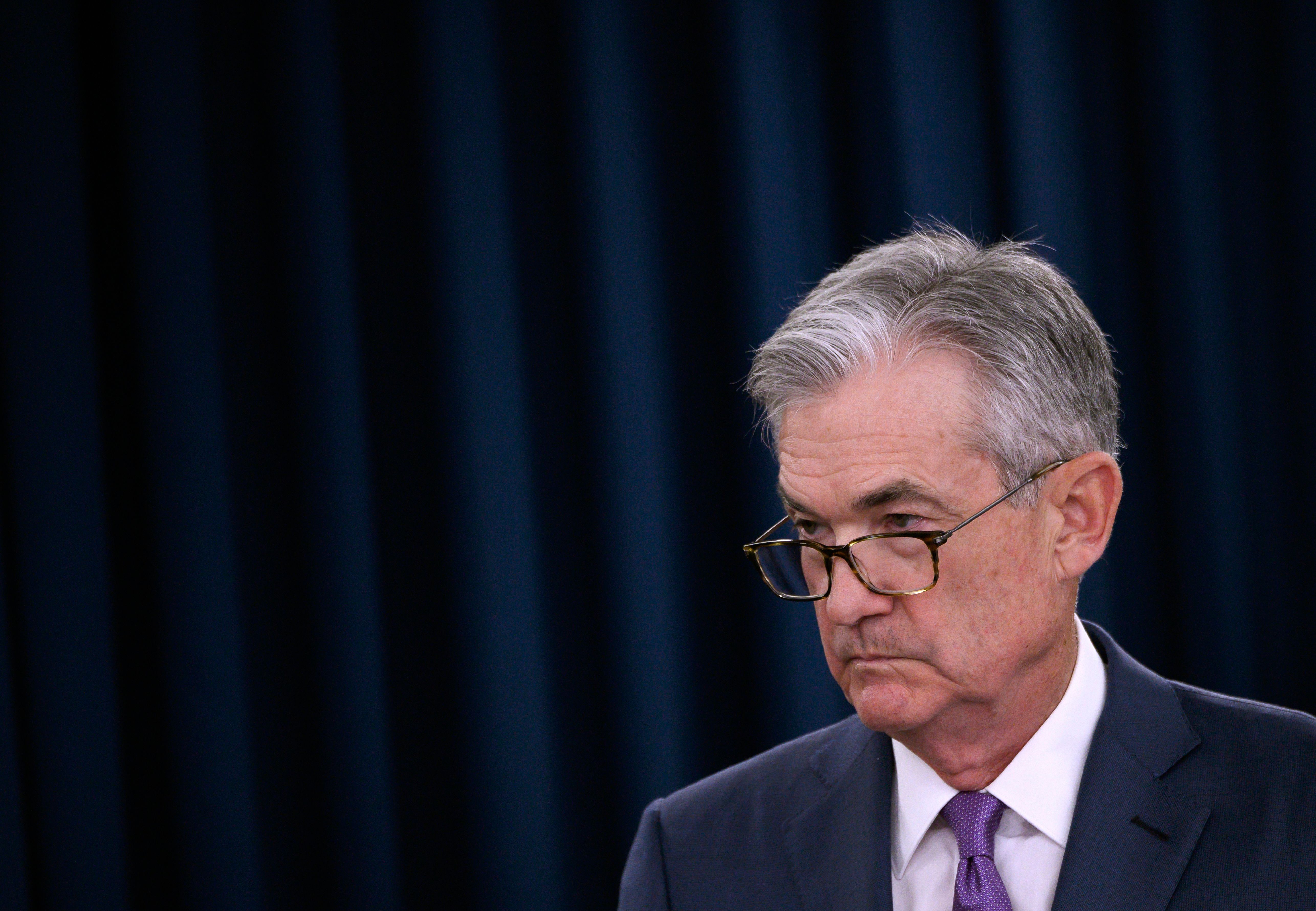Fed Chair Jerome Powell says rate cuts are not a result of political pressure


A free daily email with the biggest news stories of the day – and the best features from TheWeek.com
You are now subscribed
Your newsletter sign-up was successful
In a move that has a few people scratching their heads, the Federal Reserve announced on Wednesday its decision to cut interest rates by a quarter point to around 2.25 percent. Several economists and investors think the move lacks justification thanks to a strong economy, The Washington Post's Heather Long writes. Instead, they reportedly see the Fed as caving to President Trump, who has been pressuring Fed Chair Jerome Powell to make large cuts for months.
"I have to conclude that the Fed has lost some independence here," Blu Putnam, chief economist at CME Group told the Post.
The last time the Fed cut rates was in 2008 when unemployment was over 7 percent, the stock market had lost a third of its value, and Lehman Brothers had declared bankruptcy. The economy needed a stimulus back then. In contrast, the current unemployment rate is at a healthy 3.7 percent, the economy is growing steadily if not overwhelmingly, and the stock market is hitting record highs.
The Week
Escape your echo chamber. Get the facts behind the news, plus analysis from multiple perspectives.

Sign up for The Week's Free Newsletters
From our morning news briefing to a weekly Good News Newsletter, get the best of The Week delivered directly to your inbox.
From our morning news briefing to a weekly Good News Newsletter, get the best of The Week delivered directly to your inbox.
But Powell said in a press conference that the Fed was not acting on pressure from the White House. "We also don't conduct monetary policy in order to preserve our independence," he said. Instead, Powell said the decision — which was not made unanimously — was about fulfilling goals of maximum employment and price stability. Slow foreign growth, a decline in business investment, and trade policy tensions are among the reasons why Powell and his colleagues felt that those goals could be at risk going forward, despite the strong economic situation.
Realistically, the Post reports, one cut won't do much, but Powell isn't ruling out more. He did say, however, instituting a cycle of cuts "is not our perspective right now." Read more at The Wall Street Journal and The Washington Post.
A free daily email with the biggest news stories of the day – and the best features from TheWeek.com
Tim is a staff writer at The Week and has contributed to Bedford and Bowery and The New York Transatlantic. He is a graduate of Occidental College and NYU's journalism school. Tim enjoys writing about baseball, Europe, and extinct megafauna. He lives in New York City.
-
 Why is the Trump administration talking about ‘Western civilization’?
Why is the Trump administration talking about ‘Western civilization’?Talking Points Rubio says Europe, US bonded by religion and ancestry
-
 Quentin Deranque: a student’s death energizes the French far right
Quentin Deranque: a student’s death energizes the French far rightIN THE SPOTLIGHT Reactions to the violent killing of an ultraconservative activist offer a glimpse at the culture wars roiling France ahead of next year’s elections
-
 Secured vs. unsecured loans: how do they differ and which is better?
Secured vs. unsecured loans: how do they differ and which is better?the explainer They are distinguished by the level of risk and the inclusion of collateral
-
 TikTok secures deal to remain in US
TikTok secures deal to remain in USSpeed Read ByteDance will form a US version of the popular video-sharing platform
-
 Unemployment rate ticks up amid fall job losses
Unemployment rate ticks up amid fall job lossesSpeed Read Data released by the Commerce Department indicates ‘one of the weakest American labor markets in years’
-
 US mints final penny after 232-year run
US mints final penny after 232-year runSpeed Read Production of the one-cent coin has ended
-
 Warner Bros. explores sale amid Paramount bids
Warner Bros. explores sale amid Paramount bidsSpeed Read The media giant, home to HBO and DC Studios, has received interest from multiple buying parties
-
 Gold tops $4K per ounce, signaling financial unease
Gold tops $4K per ounce, signaling financial uneaseSpeed Read Investors are worried about President Donald Trump’s trade war
-
 Electronic Arts to go private in record $55B deal
Electronic Arts to go private in record $55B dealspeed read The video game giant is behind ‘The Sims’ and ‘Madden NFL’
-
 New York court tosses Trump's $500M fraud fine
New York court tosses Trump's $500M fraud fineSpeed Read A divided appeals court threw out a hefty penalty against President Trump for fraudulently inflating his wealth
-
 Trump said to seek government stake in Intel
Trump said to seek government stake in IntelSpeed Read The president and Intel CEO Lip-Bu Tan reportedly discussed the proposal at a recent meeting
